This article was written by guest author Armand Hurault, a member of the ASML team. It is part of our “spaces” initiative discussing the role of physcial space for citizen media – though in this case, it is the airwaves acting as they physical space.
This organisation is now currently campaigning for the release of a recently kidnapped radio journalist, and in support of free press in Syria. Global Voices recently published an article about the campaign – read about it on the GV website.
Whether digital tools and internet 2.0 was one of the causes, necessary conditions, or just a facilitator for the success of the Arab Spring – their importance is undisputed. But, the advanced digital proficiency at the core of activism in the MENA region has lead to a misinterpretation about the level of digital access.
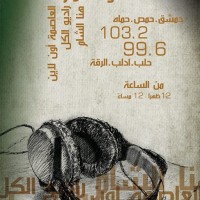
Publicity for Hawa SMART Radio.
During the first year and half of the uprising in Syria, citizen media activists used digital platforms and tools to coordinate their actions remotely – setting up efficient organisations of people who had never physically met. Skype rooms were created where hundreds of people shared and verified information before passing it to international journalists. This “all-digital” model worked as long as the objective was to leak information out of Syria and to an international audience.
Today, citizen journalists are now are making efforts to switch their audience from an international one to a domestic one. Media activists have developed autonomous Internet access through satellite modems to get around the regime’s imposition of a complete Internet blackout on certain regions and widespread electricity cuts. The many citizen radio stations and magazines which have emerged since the uprising use these methods to make their make content public to the world. But these methods are too costly and dangerous for the majority of Syrians – so these radios and magazines are only available to the population living abroad.
What gone nearly unnoticed in Syria is an increase in the traditional means of media dissemination: FM radio and print.
The Association de Soutien aux Médias Libres (ASML) is working to help these emerging citizen media to remedy the situation. We have installed a wide network of FM broadcasting teams with a coverage of almost the entire country, called Hawa SMART. The broadcasting equipment airs radio shows of citizen media radio stations (Radio al-Kul [ar], Capital Radio Huna Al-Sham) which otherwise would only be accessible online (functionally, abroad), but can now be heard across the country. We are also printing hard copies of citizen-journalism-driven magazines, distributing the hard copies inside the country.
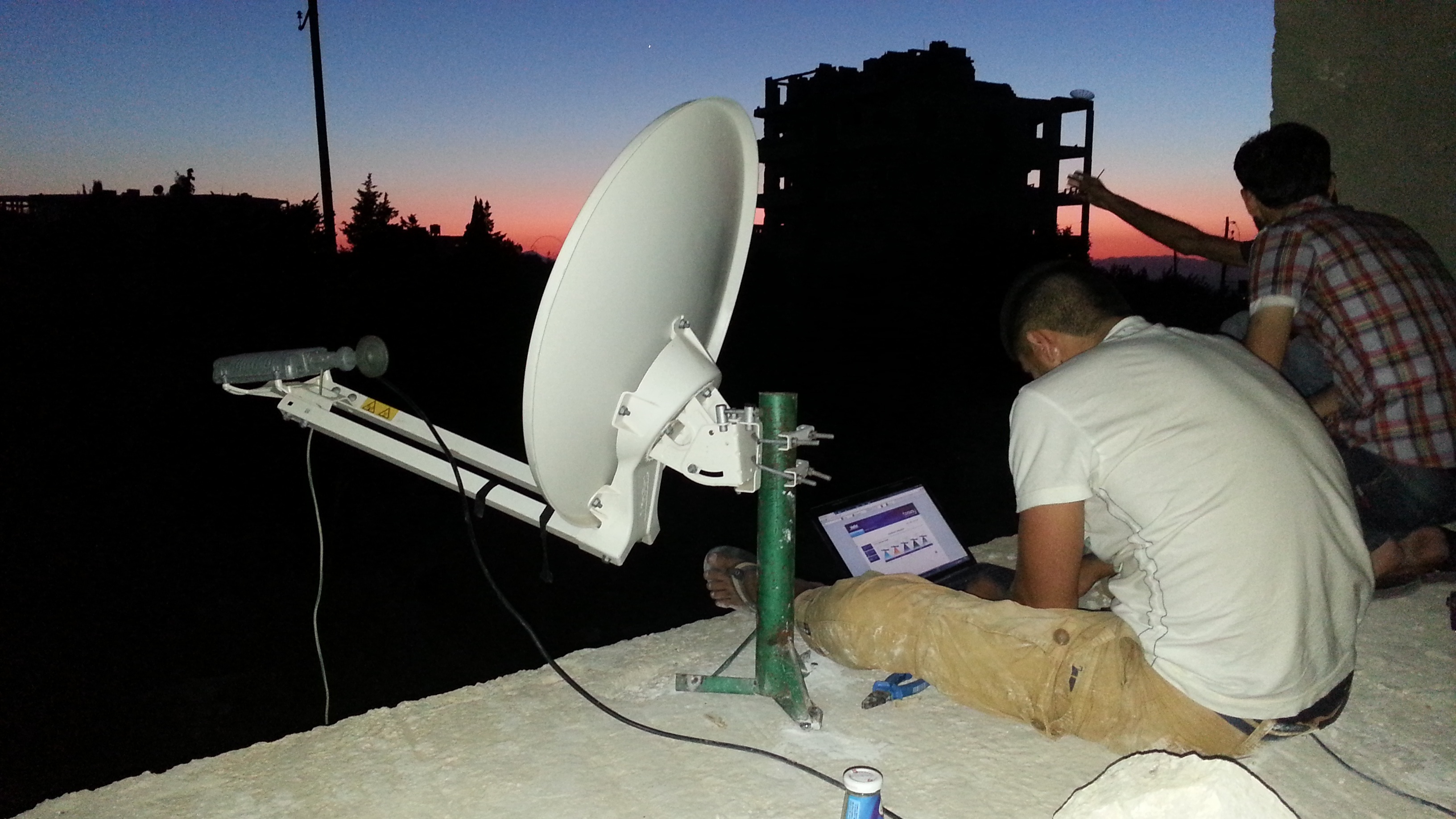
Setting up a new radio station under the cover of night (images published from ASML with permission).
There are many difficulties associated with FM coverage, including physical risks to the on-location broadcasting teams by the regime’s forces – calling for secrecy and tight security. But after this period of digital flourishing during the Arab Spring, radio has reemerged as the most efficient way to reach local audiences living inside Syria, requiring only a cheap receiver and a small battery. It is one of the most accessible ways for people to hear about what is going on in neighboring areas, and to hear what their fellow citizens around the country are thinking and doing.
Broadcasting team leader Amrou approves of the wide coverage:
Now Hawa SMART covers almost un-interruptedly an area which goes from Turkey to the very south of the country… [as well as] the coastal region. This [region] is very strategic because it is populated in majority with Allawite populations, the sect of President Bashar al-Assad, and which has been mostly supporting the regime since 2011. It was very important for us to reach this region because we are working for a united Syria. It is crucial to target all segments of society to avoid the collapse of the country.”
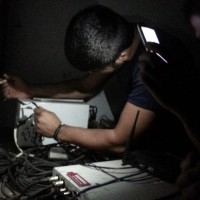
Radio set-up lit by a cell phone.
These radio stations were started by amateur citizen media who are now producing several hours of radio per day. Shows are varied – both for entertainment but also very serious issues. Radio Al-Kul, for example, features children's shows and sports, but also regional news programming focused on local concerns, and a call-in show where listeners can contribute to discuss their own worries and regional concerns.
The FM broadcasts now being heard across Syria can be streamed online through Hawa SMART, made accessible for Syrian expatriates and refugees, or anyone else wanting to hear about what is going on.
To stay in touch, you can follow Radio AlKul on Facebook [ar], and ASML on twitter @ASML_medialibre [ar] – or get in touch with them info @ medialibre.fr .

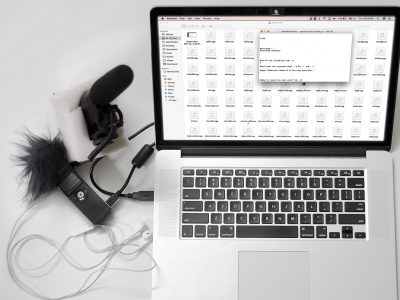
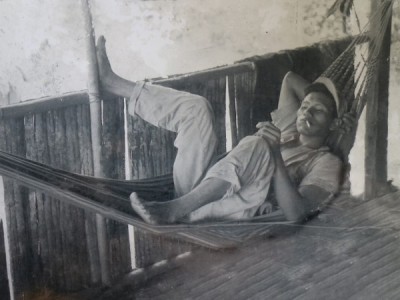
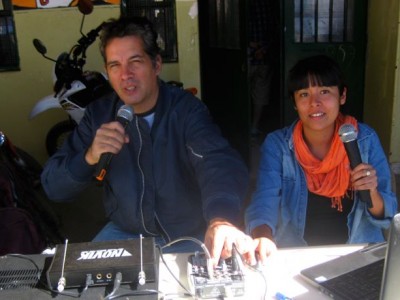
2 comments